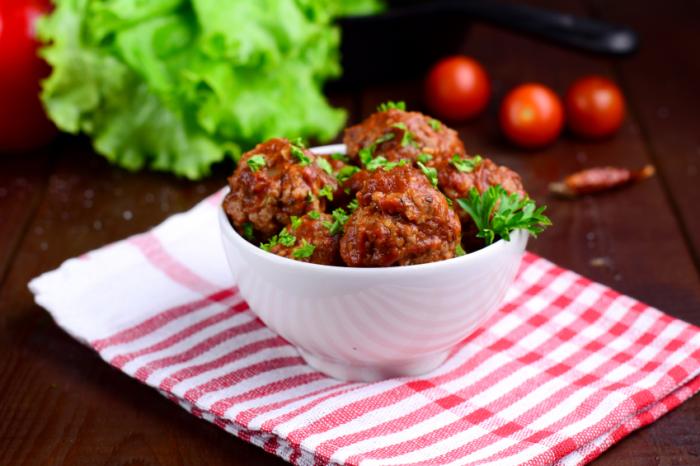It is hard to even picture a holiday feast without the turkey. Although the holidays are prime time for turkey consumption, turkey is also a popular sandwich meat and ground beef alternative year-round.
The USA is the world's largest producer of turkey meat at 2.5 million tons per year, compared to the 1.75 million tons produced by all countries in the European Union combined.
This article provides a nutritional breakdown of turkey and an in-depth look at its possible health benefits, what kind of turkey you should buy, health recipes incorporating turkey and any potential health risks of consuming turkey.
Contents of this article:
- Nutritional breakdown of turkey
- Possible health benefits of consuming turkey
- How to incorporate more turkey into your diet
- Potential health risks of consuming turkey
Nutritional breakdown of turkey
![thanksgiving turkey]](http://www.medicalnewstoday.com/images/articles/285/285736/thanksgiving-turkey.jpg)
The US is the world's largest producer of turkey meat at 2.5 million tons per year.
According to the USDA National Nutrient database, 3 ounces (85 grams) of turkey, breast, from whole bird, non-enhanced, meat only, roasted, contains 125 calories, 2 grams of fat, 0 grams of carbohydrate (0 grams of sugar and 0 grams of fiber) and 26 grams of protein.
In comparison, 85 grams of dark meat turkey, roasted, contains 147 calories, 5 grams of fat, 0 grams of carbohydrate (0 grams of sugar and 0 grams of fiber) and 24 grams of protein.
Turkey contains vitamins B-6 and B-12, niacin, choline, selenium and zinc. The dark meat of turkey tends to contain more vitamins and minerals, but also has more fat and calories.
You may have heard of the amino acid tryptophan, said to be the cause of all the napping after a big Thanksgiving dinner. While it is true that turkey contains tryptophan, it is not in an amount high enough to induce sleep. In fact, all meats contain tryptophan. Eating turkey at Thanksgiving should not make you any more drowsy than eating a pork chop on an ordinary Tuesday evening.
Possible health benefits of consuming turkey
Eating foods like turkey that are high in protein help to increase the feeling of satiety and make you feel fuller for a longer period. Getting enough protein ensures maintenance of lean muscle mass and can keep insulin levels stable after meals. That being said, protein is the one nutrient that most meat-eaters are already getting plenty of.
Keep in mind that the amount of protein at each meal matters; you can only absorb so much at one time. Make sure to have a lean protein source at each meal and spread your intake out throughout the day. Other good choices for protein include nuts, fish, eggs, dairy, soy and legumes.
The breast of the turkey has less fat and calories than most other cuts of meat, but do not assume that just because a product is made from turkey that it is healthier. For example, a burger made from ground turkey can contain just as much saturated fat as a beef burger, depending on how much dark meat is included in the ground turkey.
Make sure to check the package for fat content or % leanness and compare. Turkey contains the mineral selenium, which studies have suggested higher intakes of may decrease the risk of colorectal, prostate, lung, bladder, skin, esophageal, and gastric cancers.
How to incorporate more turkey into your diet
Avoid processed turkey in the form of deli meats, hot dogs and turkey bacon, which are high in sodium. Even frozen, pre-packed turkey burgers can be full of added salt and preservatives.

Juicy steamed turkey meatballs in rich tomato sauce with chopped parsley on top.
Go for fresh, lean, organic and pasture-raised turkey, which have been raised in humane conditions without antibiotics.
Factory farmed and conventionally raised turkeys are often injected with salt, water and other preservatives during processing to extend shelf life and cut costs.
Pasture-raised turkeys with access to vegetation also have a higher omega-3 content than factory-farmed turkeys.
Heritage turkeys are raised in smaller flocks, given access to the outdoors and allowed extra grow time. They provide more flavorful meat and are not injected with salt or preservatives.
Make sure to cook turkey until the internal temperature reaches 165 degrees Fahrenheit to reduce the risk of foodborne illness.
Try some of these delicious recipes developed by registered dietitians:
- Three bean turkey chili
- Thai turkey stir-fry
- Wild blueberry turkey burgers
- Spinach and turkey meatballs
Potential health risks of consuming turkey
Processed turkey products can be high in sodium and harmful to health. Many processed meats are smoked or made with nitrites, which are known carcinogens. As intake of processed meat goes up, risks for obesity, heart disease, high blood pressure, high cholesterol, cancer and infertility go up as well. Minimize your intake of all processed turkey products.
It is the total diet or overall eating pattern that is most important in disease prevention and achieving good health. It is better to eat a diet with a variety than to concentrate on individual foods as the key to good health.
References:
1.
Basic Report: 05220, Turkey,
breast, from whole bird, non-enhanced, meat only, roasted, United
States Department of Agriculture National Nutrient Database for Standard
Reference, Release 27, Accessed 14 November 2014.
2.
National institutes of health
office of dietary supplements, Reviewed: 2 July 2013, accessed 14
November 2014.
3.
Talking turkey: conventional turkey or heritage turkey,
Agrilicious, accessed 14 November 2014.
4.
Turkey, pasture raised. The
world’s healthiest foods 2001-2014, The George Mateljan Foundation,
accessed 14 November 2014.
No comments:
Post a Comment